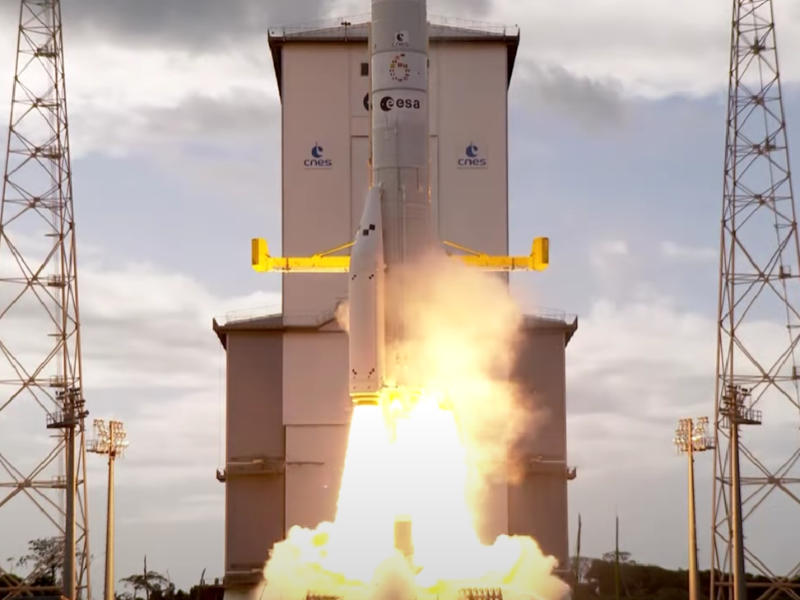- Ariane 6 rocket successfully completed its debut flight from French Guiana, deploying three micro-satellites for research, marking Europe’s regained access to space.
- The successful restart of the Vinci engine in space during the mission underscores Europe’s capability in space technology and strategic independence for future orbital missions.
OUR TAKE
Ariane 6’s inaugural launch marks a pivotal moment for Europe’s space ambitions, aiming to bridge the gap in independent launch capability amidst geopolitical challenges. Delayed, it underscores Europe’s determination to regain sovereign access to space, crucial for both government missions and commercial enterprises. The success of this mission will not only demonstrate Europe’s technological prowess but also impact its competitiveness in the global space market.
–Jasmine Zhang, BTW reporter
What happened
Europe celebrated its return to space as the Ariane 6 rocket completed a successful debut flight on Tuesday, despite a glitch at the mission’s end. Launched from French Guiana, the rocket, watched by a Rafale fighter jet, marked a significant milestone after delays and funding debates.
The flight, although not commercial, deployed three micro-satellites for research, demonstrating Europe’s regained access to space. Philippe Baptiste of France’s National Centre for Space Studies (CNES) agency declared, “Europe is back in space,” amidst cheers at the European Space Agency (ESA) headquarters. A pivotal moment was the successful restart of the Vinci engine in space, crucial for placing payloads into different orbits.
The mission’s overall success underscores Europe’s capability in space technology and its strategic independence in accessing orbital space for future missions.
Also read: Alibaba to deliver parcels globally within 1 hour using rockets
Also read: SpaceX secures $1.8B to develop covert US spy satellite network
Why it’s important
As Europe’s Ariane 6 rocket prepares for its inaugural launch, it symbolises more than just a technological flash – it’s a key moment for Europe’s space ambitions amidst geopolitical challenges.
With its delayed arrival highlighting Europe’s gap in independent launch capability, Ariane 6 aims to regain sovereign access to space, crucial for both governmental missions and commercial ventures like Amazon’s Kuiper constellation.
The launch not only underscores Europe’s determination to compete in the global space market but also raises questions about its future competitiveness against SpaceX and other emerging players. As the world relies increasingly on satellite technology, Ariane 6’s success or setbacks will influence Europe’s standing in the space race and its ability to navigate geopolitical complexities. It’s a moment where technological prowess meets strategic necessity, shaping Europe’s role in space exploration and satellite connectivity for years to come.

